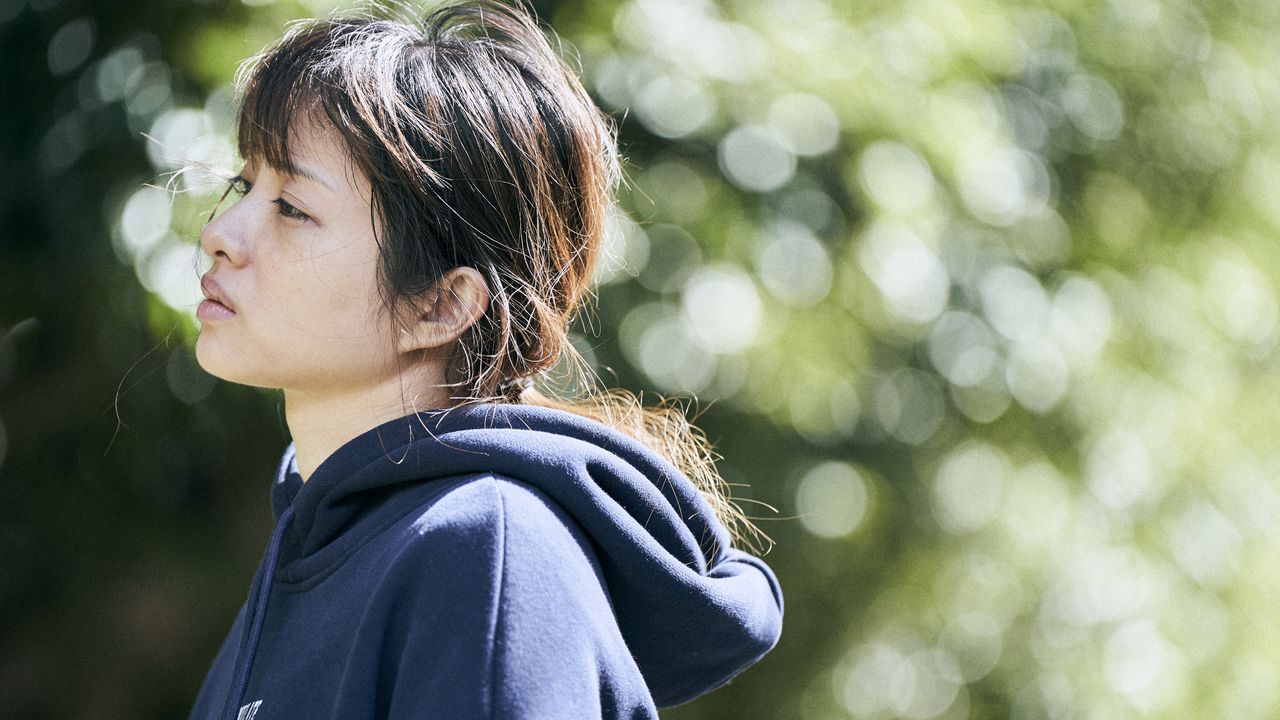
“Missing”: A Story of Loss and Media Sensationalism Run Amok
Cinema Society Family- English
- 日本語
- 简体字
- 繁體字
- Français
- Español
- العربية
- Русский
Cloud of Suspicion
What is it like to be pushed to the edge by tragedy? To be dogged relentlessly by a scandal-hungry mass media? To be judged without mercy online? Director Yoshida Keisuke plumbs these dark corners of contemporary society in his stirring human drama Missing (2024).
The film opens three months after the kidnapping of a six-year-old girl, Miu. Mother Saori (Ishihara Satomi) and father Yutaka (Aoki Munetaka) are at their wits’ end but press on in their desperate search for their daughter. The police have failed to turn up any clues, so the couple turn to a television reporter, Sunada (Nakamura Tomoya), whose appeals to viewers likewise fail to turn up any leads.
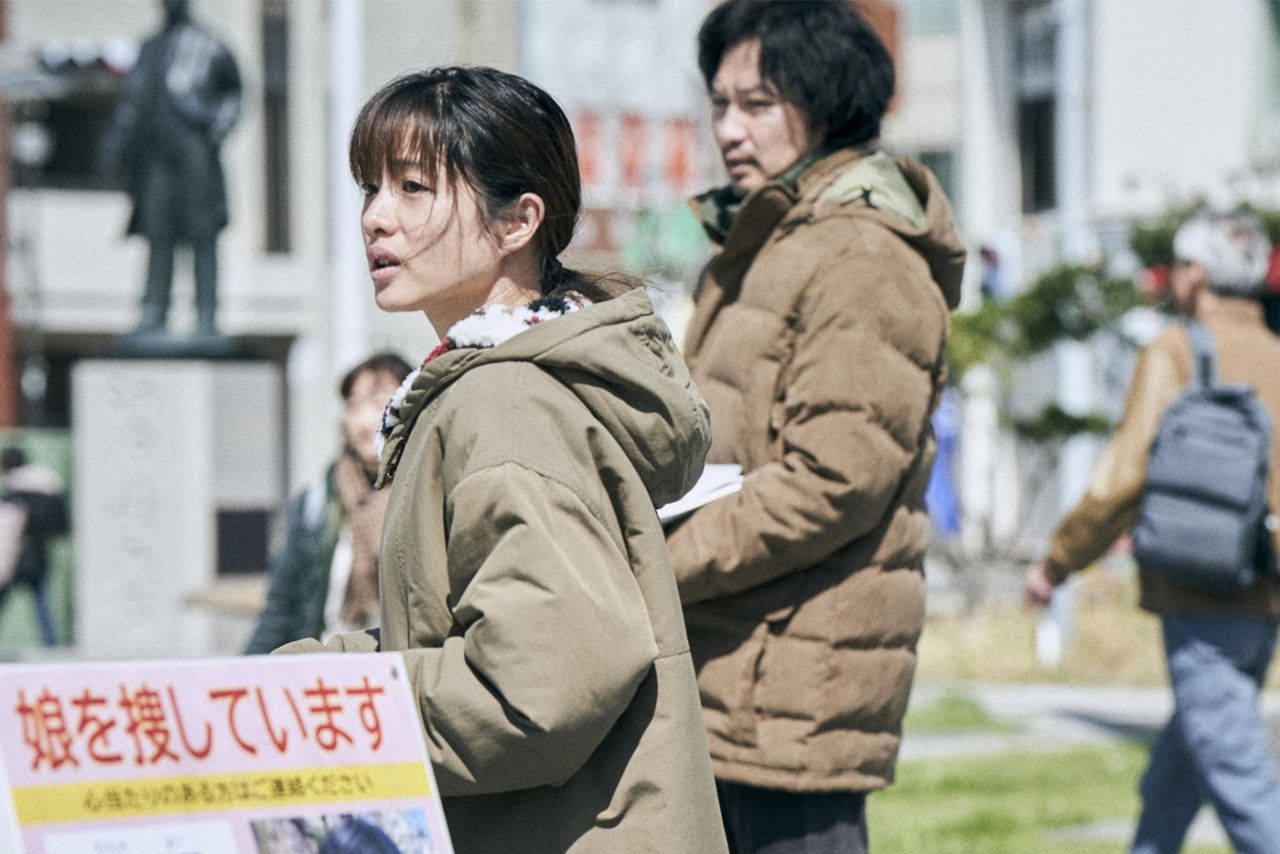
Saori (Ishihara Satomi) and Yutaka (Aoki Munetaka) stand outside the station in hopes a passerby might provide a clue to their daughter’s disappearance. (© 2024 Missing Film Partners)
Suspicion focuses on Keigo (Mori Yūsaku), Saori’s younger brother and the last person seen with the missing girl. His inconsistent story invites public condemnation and drives a wedge between the siblings. Saori herself becomes an online target for having been at a concert the night her daughter’s disappearance. An endless stream of internet vitriol questioning her worth as a mother amplifies her feelings of guilt and self-loathing, straining her relationship with her mild-mannered husband, whom she sees as distant.
Sunada continues to cover the story in the earnest hope that it will turn up some clue. As public interest in the story dwindles, though, the higher-ups at the television station pressure him to spice up his reporting to keep viewers tuning in, testing his conscience and journalistic integrity.
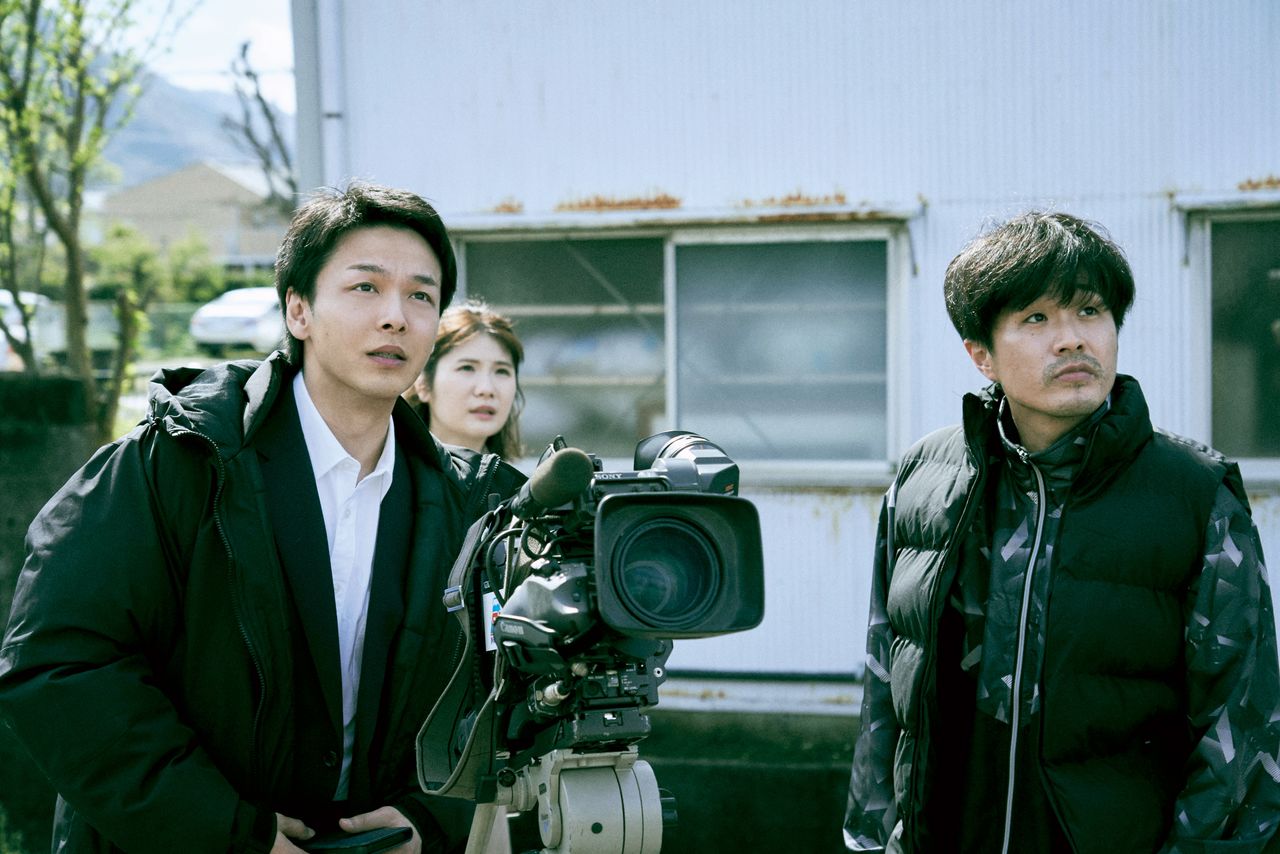
Sunada (Nakamura Tomoya) and his film crew find the lines blurred between truth and sensationalism. (© 2024 Missing Film Partners)
An Emotional Crucible
Missing takes hold of the audience from the opening scene and does not let go. Director Yoshida lays bare the anguish of a family pushed to the extreme and Sunada’s moral struggles, setting these against a society clamoring for sensationalism. Filled with raw emotion, the film at times has the feel of a docudrama.
Ishihara Satomi is thoroughly convincing as the inconsolable, guilt-wracked mother desperately clinging to ever dwindling hope. Saori’s tormented state of mind is embodied in every aspect of her behavior, from her mistrust of others to her tearful meltdowns. Mentally and physically drained, she lashes out at her husband and brother while also turning her rage inward.

Saori, pushed to the limits, takes her anger out at her brother Keigo. (© 2024 Missing Film Partners)
Viewers may wonder just how far Ishihara is willing to push herself in this role, given how far it departs from the public image she has presented to date. In this film, she displays truly impressive range, going beyond what might be expected from a straightforward presentation of the character of a mother pushed to the edge to present much more of the complexity of human nature as a whole.
In his directorial outing, meanwhile, Yoshida avoids the low-hanging fruit of melodrama in portraying the fallout of the kidnapping. It is easy to feel sorry for Saori, but she often presents an aggressive side that introduces a lingering question of whether such physical encounters are the norm rather than a product of her strained mental state.
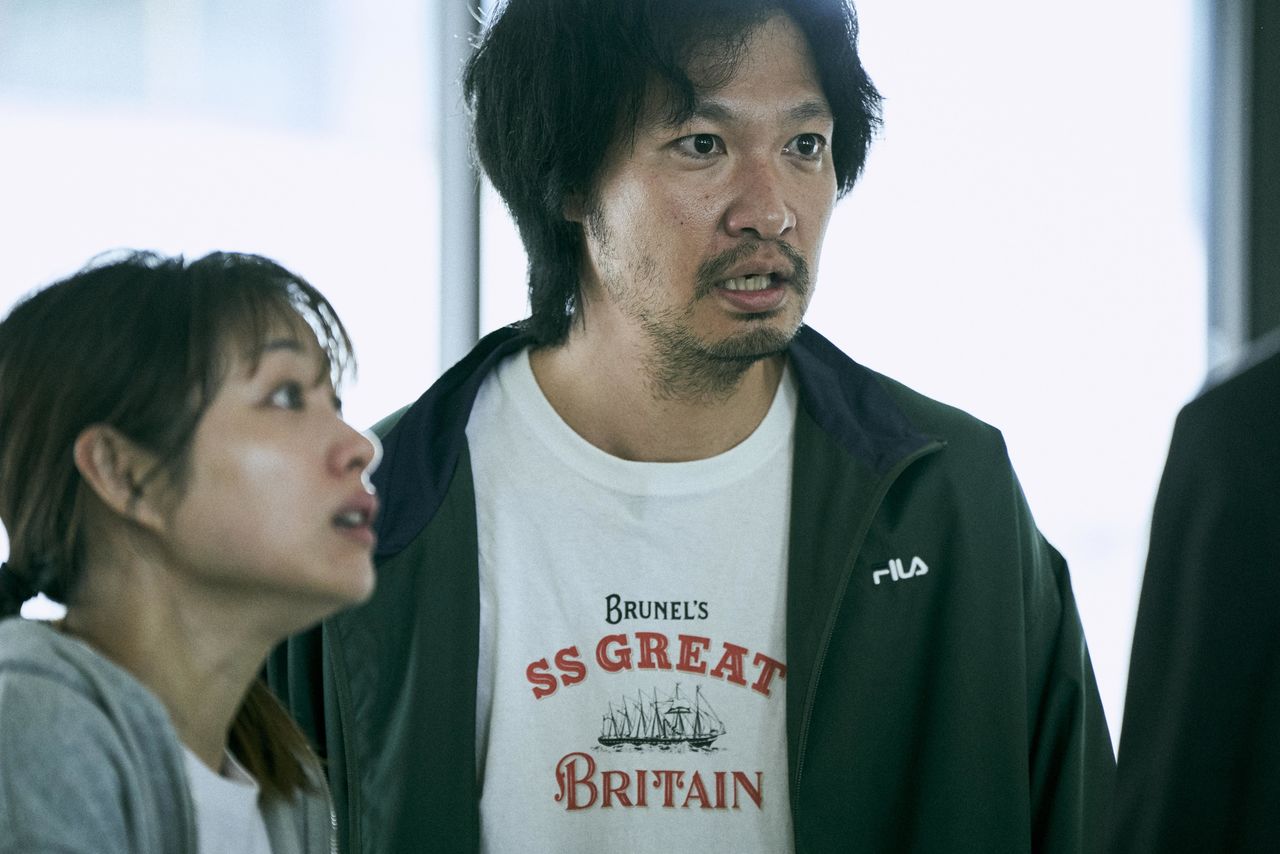
Yutaka strives to remain calm amid the turmoil, but his anguish bursts forth at times as well. (© 2024 Missing Film Partners)
The reporter Sunada is another tortured character. He is deeply committed to helping Saori, but in contrast to her fits of emotion, he works to keep his feeling under wrap, only showing hints of his inner struggles hiding below the surface.
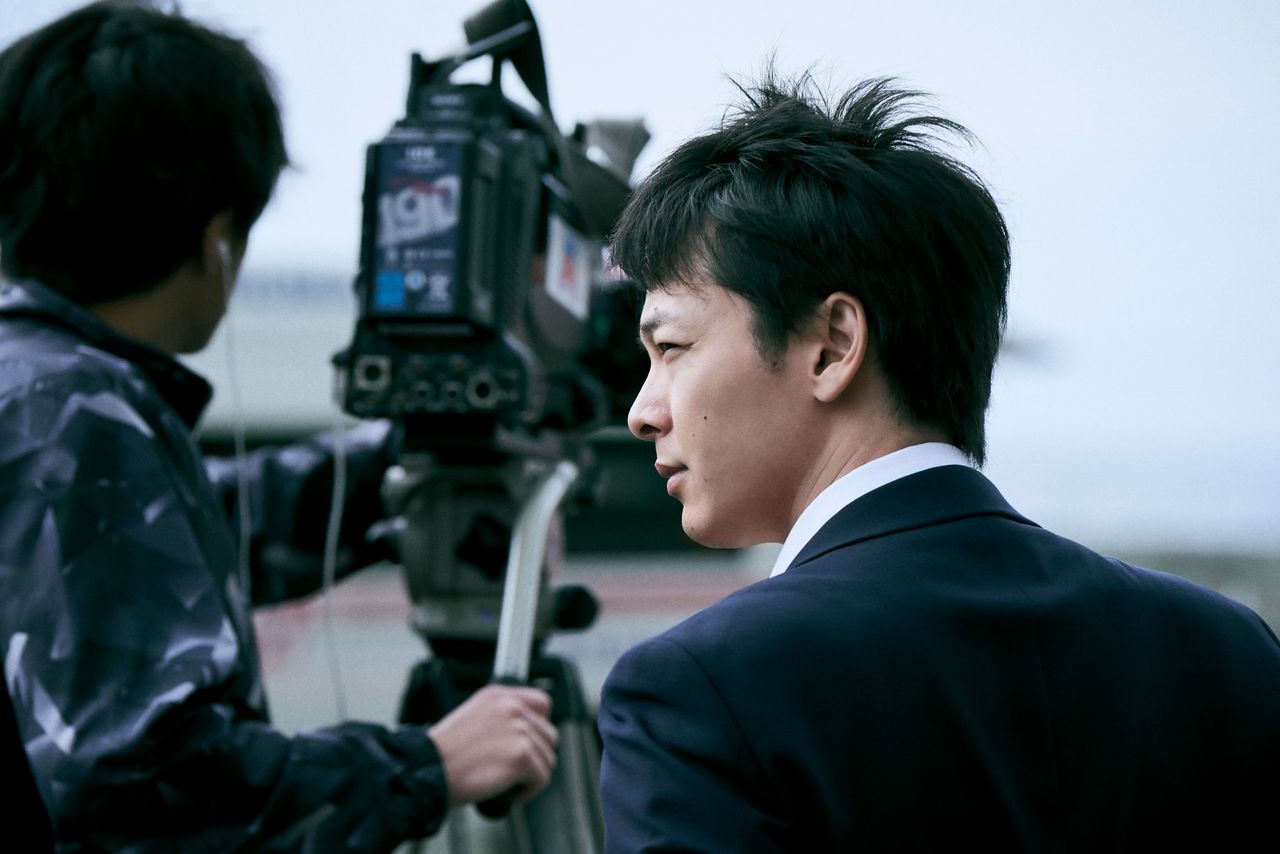
Sunada tries to remain calm as the pressure mounts. (© 2024 Missing Film Partners)
A Reflection of Society
Missing portrays one small story in an endless flood of information. Yoshida refrains from using the girl’s disappearance as a commentary on crime in contemporary society, instead delving ever more deeply into the emotional landscape of parents who have lost everything. The outcome is a faithful presentation of the reality that confronts and surrounds the characters.
Saori, in her search for any shred of information about her daughter, looks for help online. She keeps an eye out for slanderous posts, but at the same time grasps desperately at anonymous messages, no matter how unbelievable. At first thankful for Sunada’s help, she shifts and becomes enraged at the reporter. An anguished mother, she is but a passing story to a judgmental online community ravenous for ever more scandalous content—something Sunada’s bosses at the television station are keen to exploit.
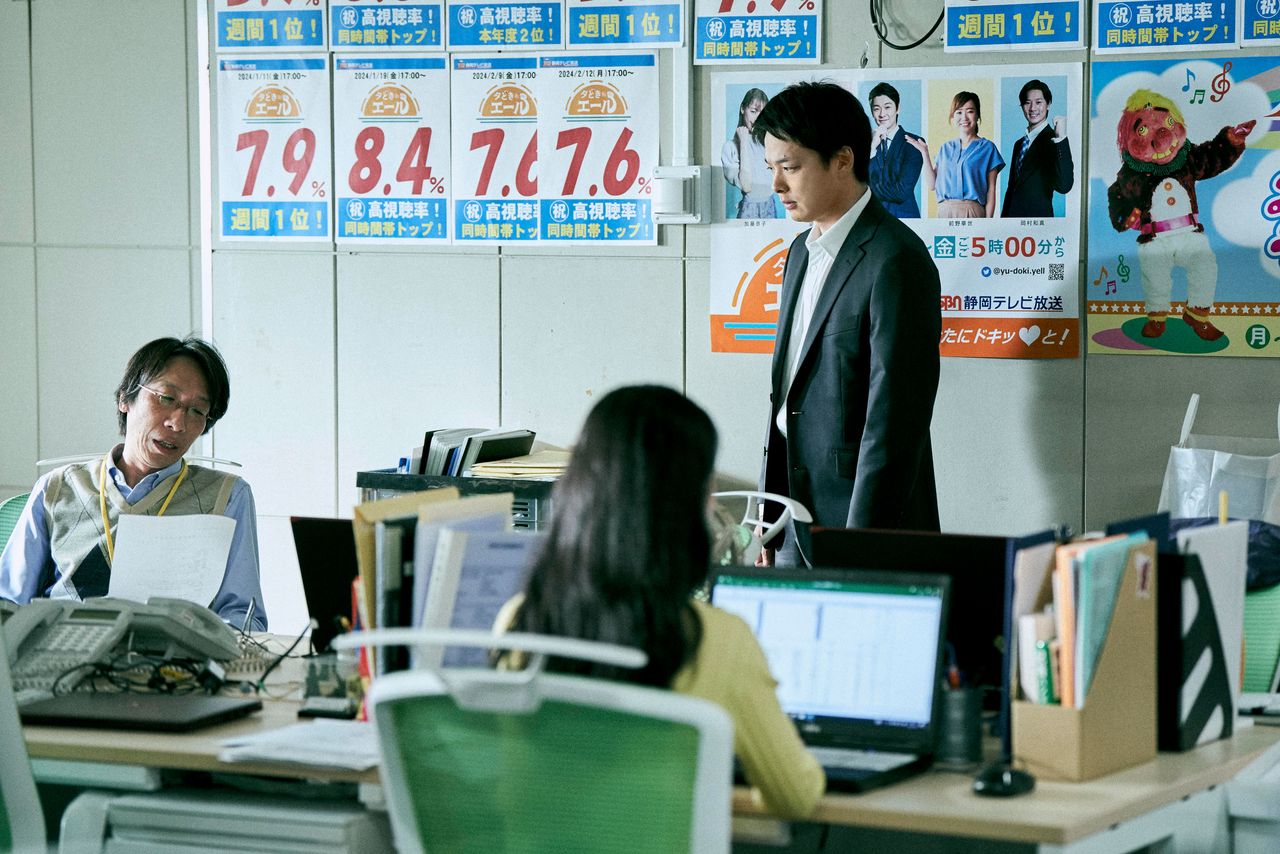
Sunada, here speaking to his editor Meguro (Komatsu Kazushige), is caught in the gears of a scandal-hungry media. (© 2024 Missing Film Partners)
Sunada attempts to push back against the pressure to sensationalize the kidnapping but cannot ignore the allure of ratings and reactions on social media, which can make or break a journalistic career. It is a vile mix that blurs the lines between news and entertainment.
The above is just a sampling of the various human angles presented in Missing. But with the missing person case at its core, and the media reporting and social media hubbub swirling around the case, the film gradually builds an image of the amorphous fabric of society today. Yes, it is home to plenty of people who aggressively push forward negative takes on other people on the scene. But there are also hints of almost-goodness to be gleaned here and there. Nevertheless, it is in this turmoil that Saori and those around her are ground down, little by little.
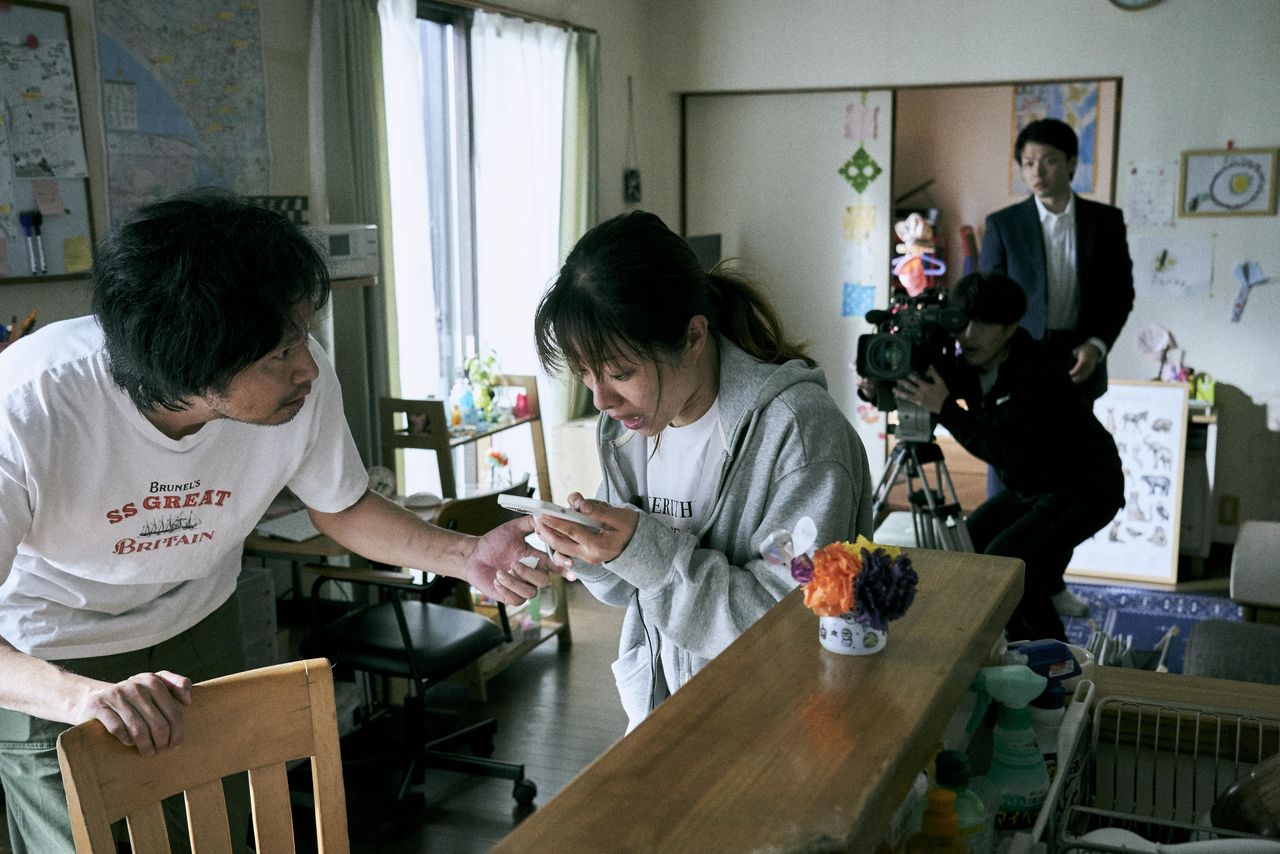
The family is caught in a seemingly unending chaotic spiral. (© 2024 Missing Film Partners)
The film does not try to elicit sympathy or compassion for the characters. But for all of Yoshida’s harshness, he imbues Missing with an underlying gentleness. Watching Saori struggle through her situation, viewers are enticed to share in her hurt and loss from the first scene until the painful—and powerfully tender—close.
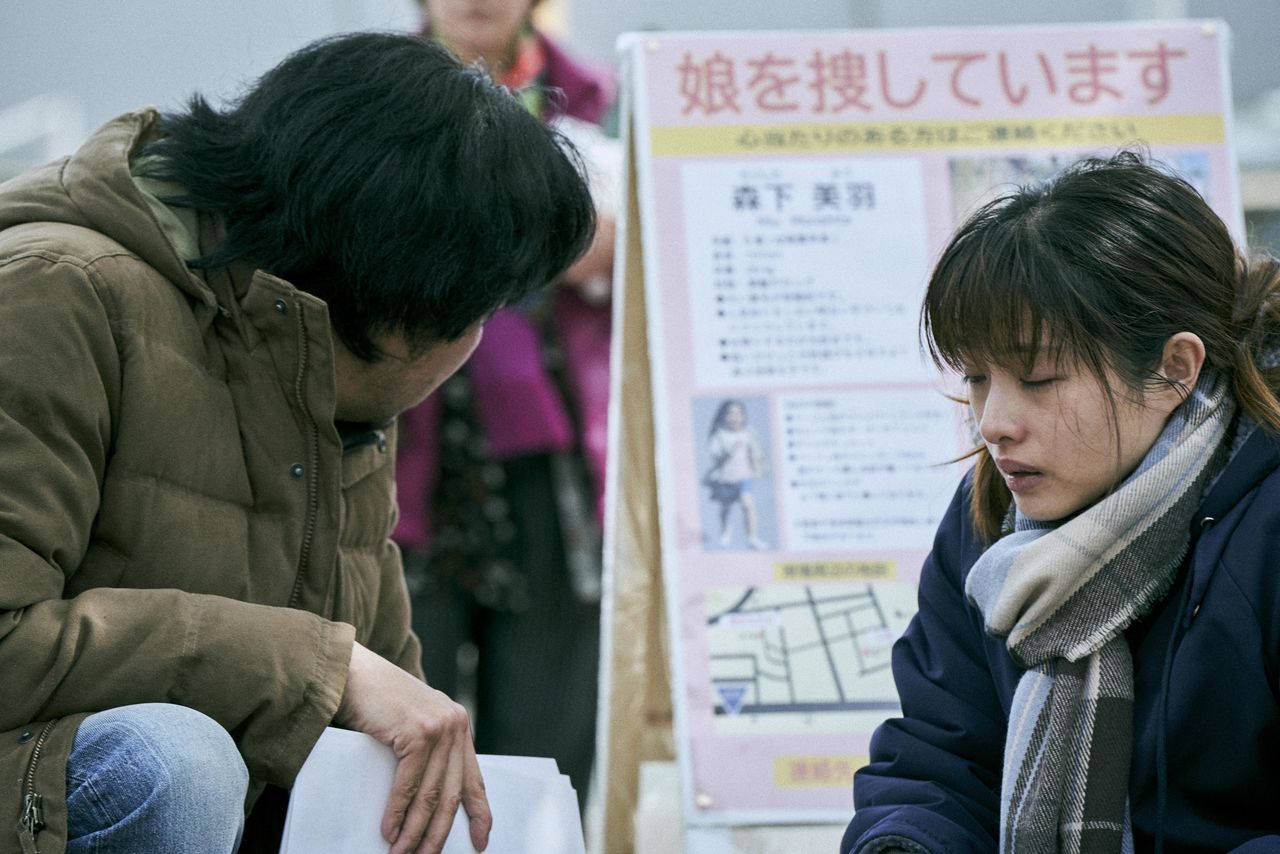
(© 2024 Missing Film Partners)
(Originally published in Japanese. Banner photo © 2024 Missing Film Partners.)
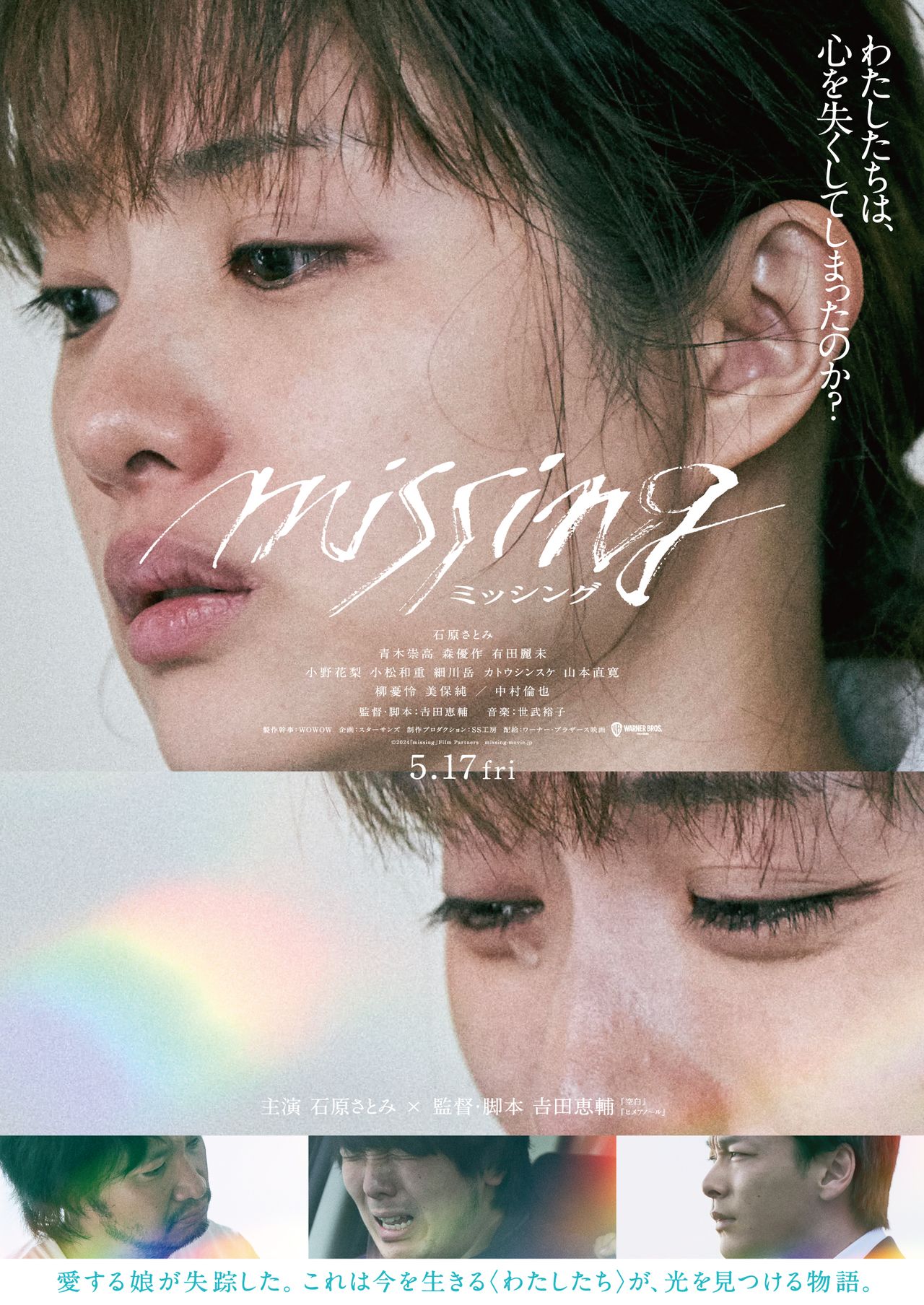
(© 2024 Missing Film Partners)
Missing (2024)
- Directed by Yoshida Keisuke
- Website: missing-movie.jp (Japanese)
